Презентація на тему «Ecological problems» (варіант 7)
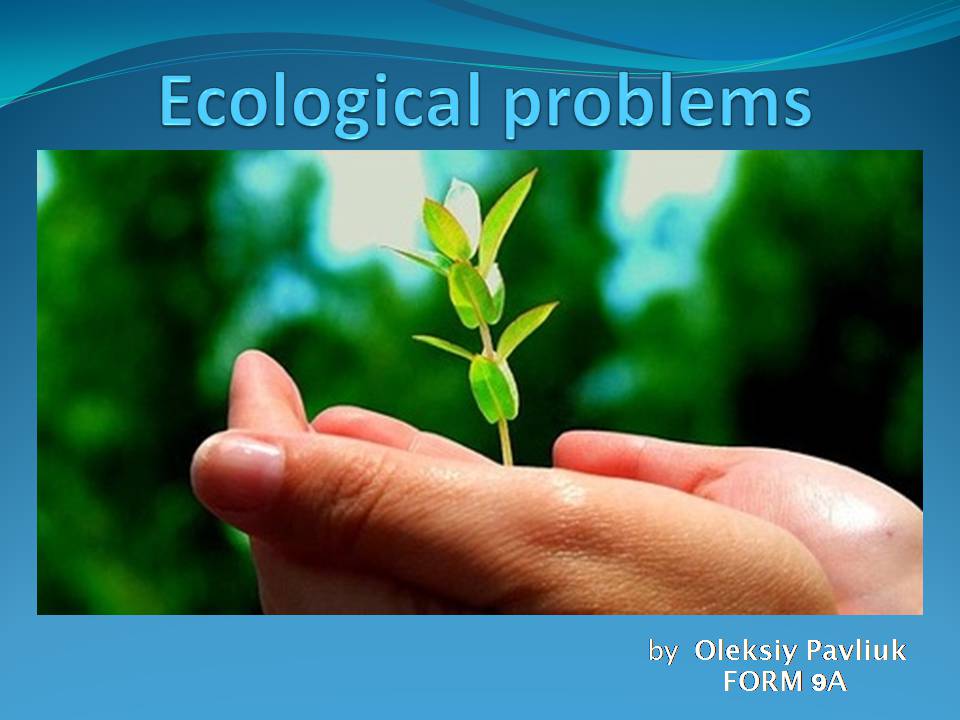
Ecological problems
by Oleksiy Pavliuk
FORM 9A
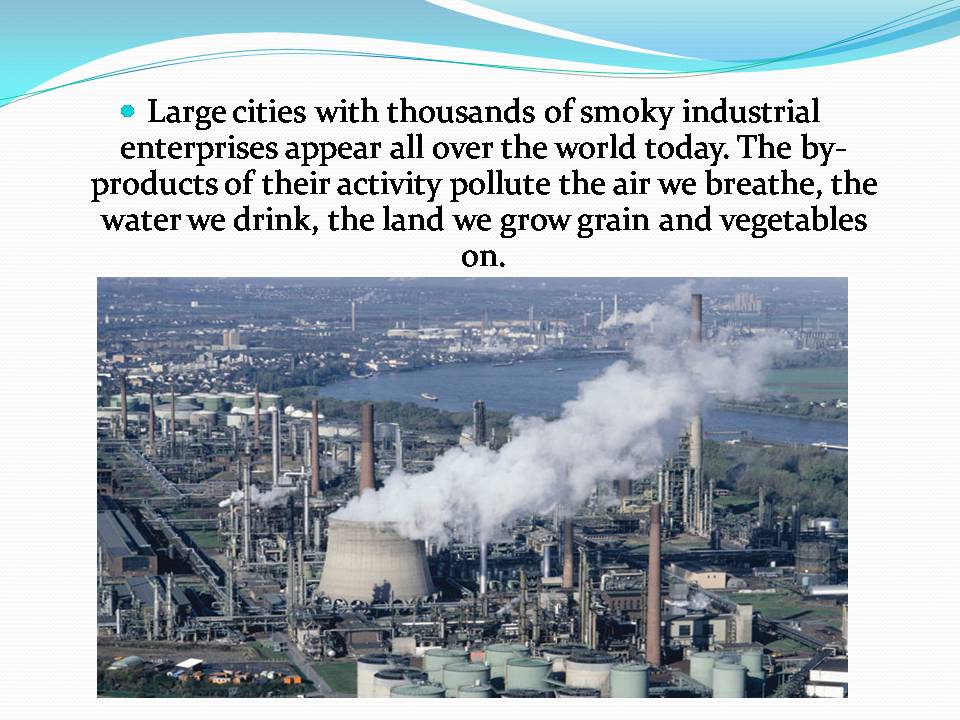
Large cities with thousands of smoky industrial enterprises appear all over the world today. The by-products of their activity pollute the air we breathe, the water we drink, the land we grow grain and vegetables on.
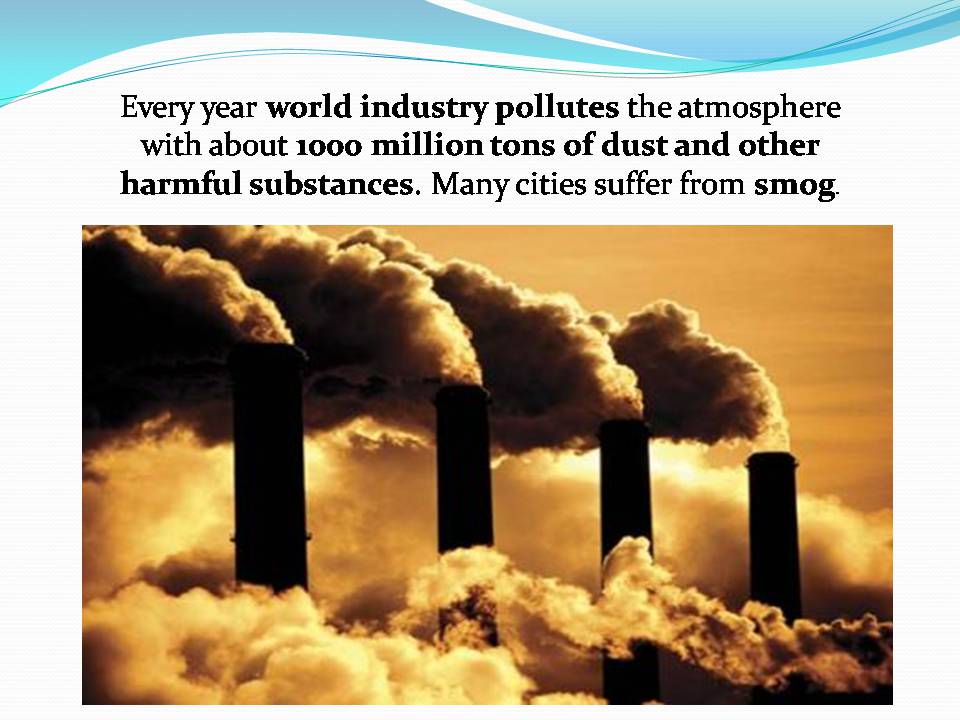
Every year world industry pollutes the atmosphere with about 1000 million tons of dust and other harmful substances. Many cities suffer from smog.
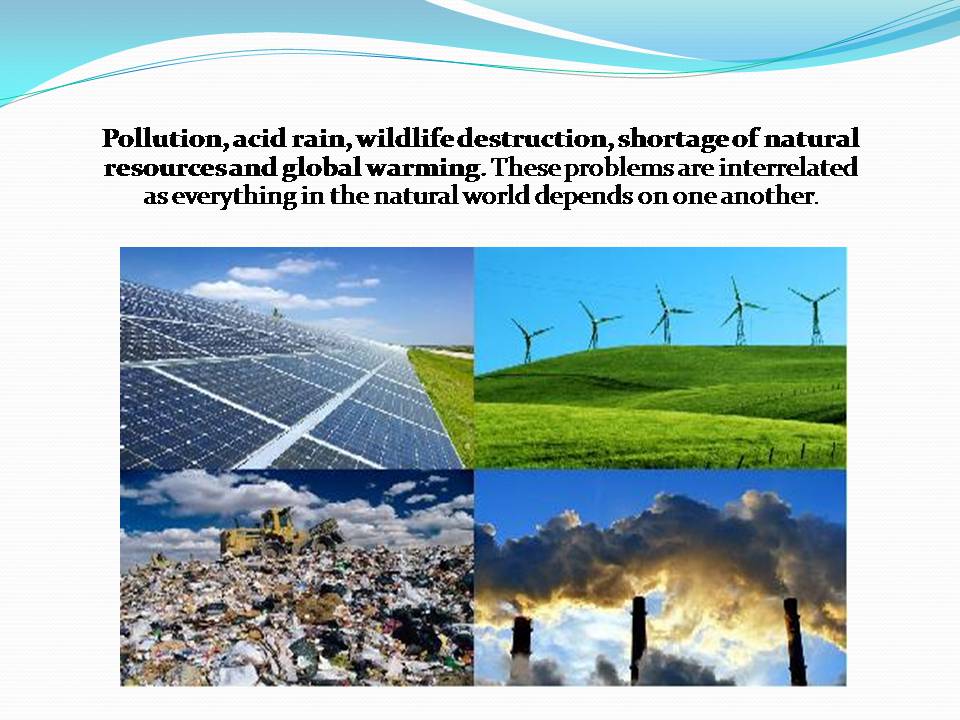
Pollution, acid rain, wildlife destruction, shortage of natural resources and global warming. These problems are interrelated as everything in the natural world depends on one another.
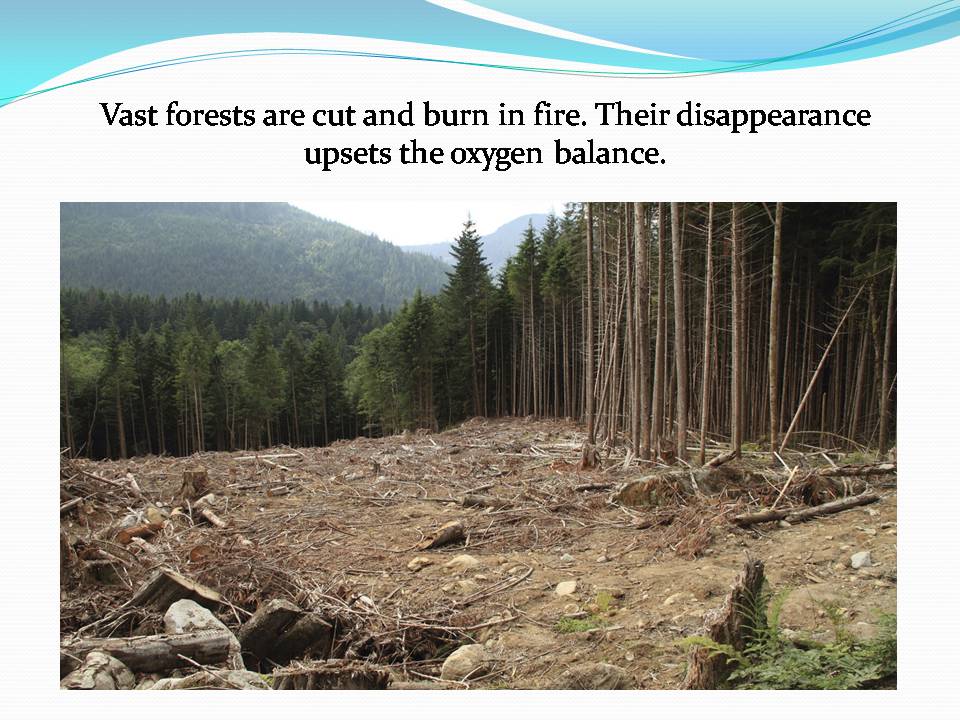
Vast forests are cut and burn in fire. Their disappearance upsets the oxygen balance.
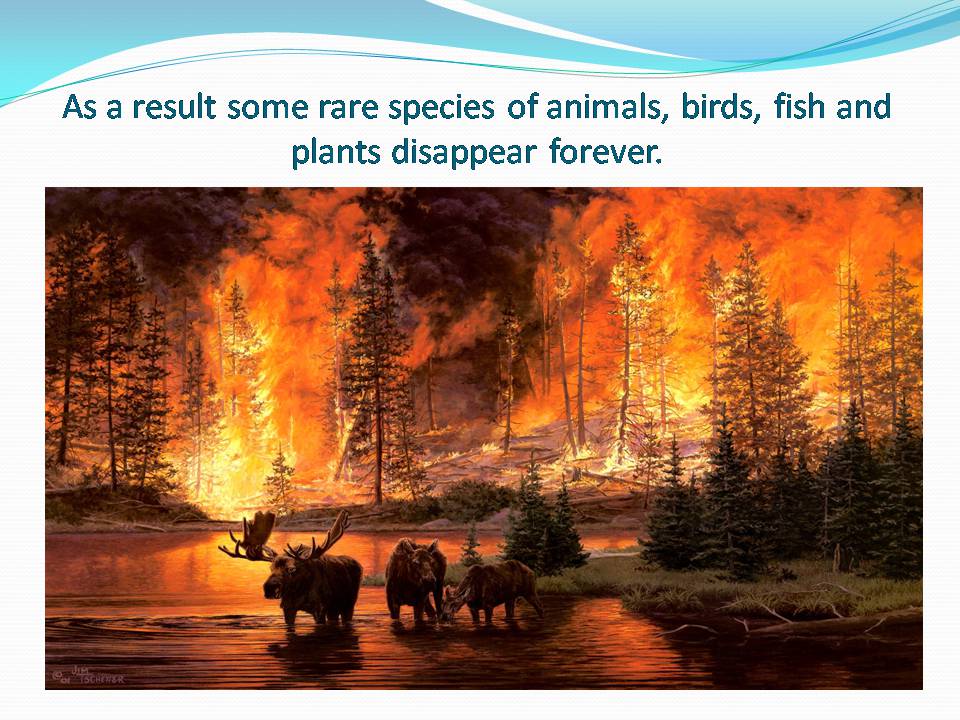
As a result some rare species of animals, birds, fish and plants disappear forever.
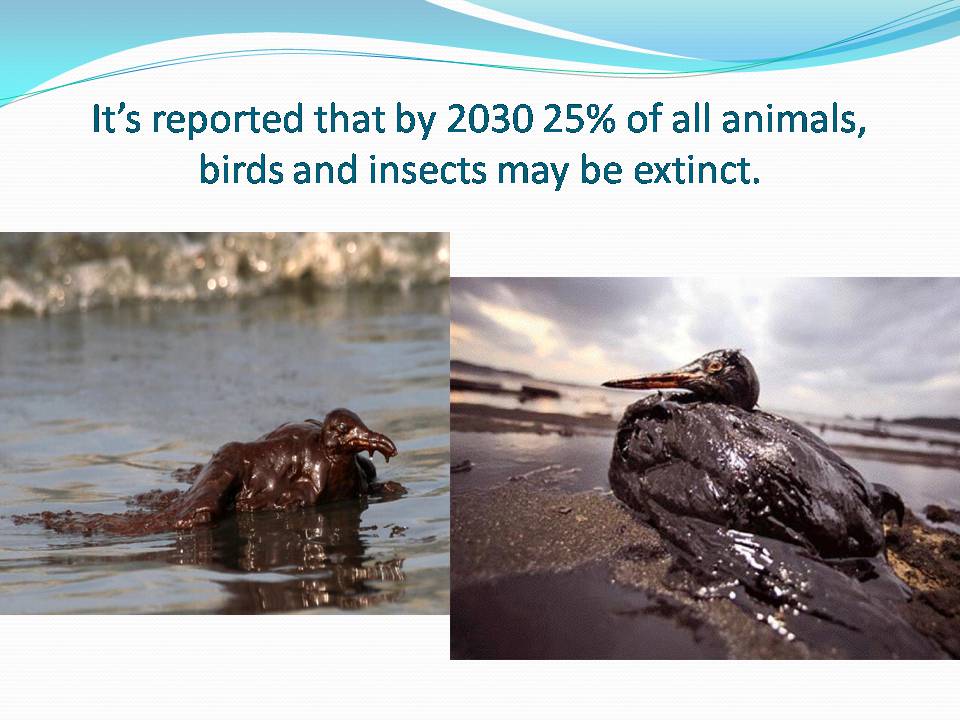
It's reported that by 2030 25% of all animals, birds and insects may be extinct.
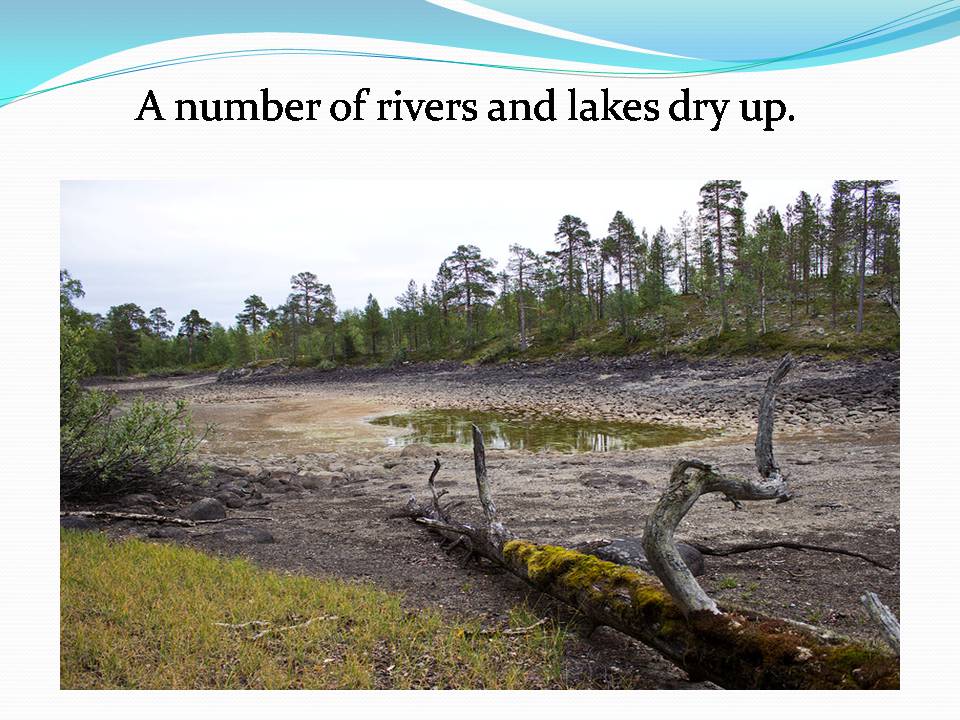
A number of rivers and lakes dry up.
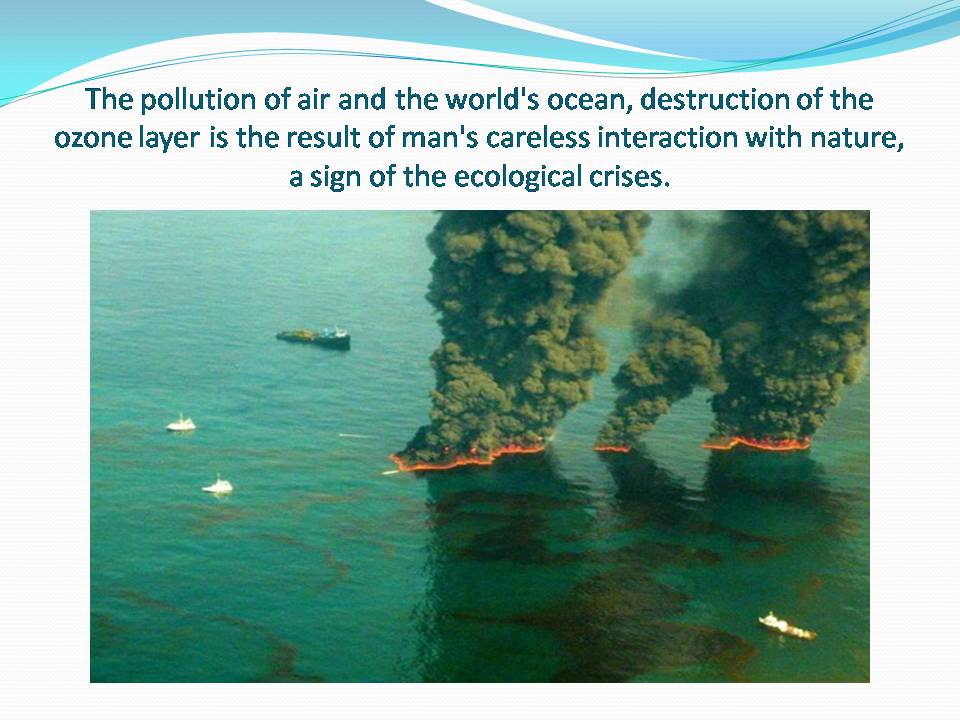
The pollution of air and the world's ocean, destruction of the ozone layer is the result of man's careless interaction with nature, a sign of the ecological crises.
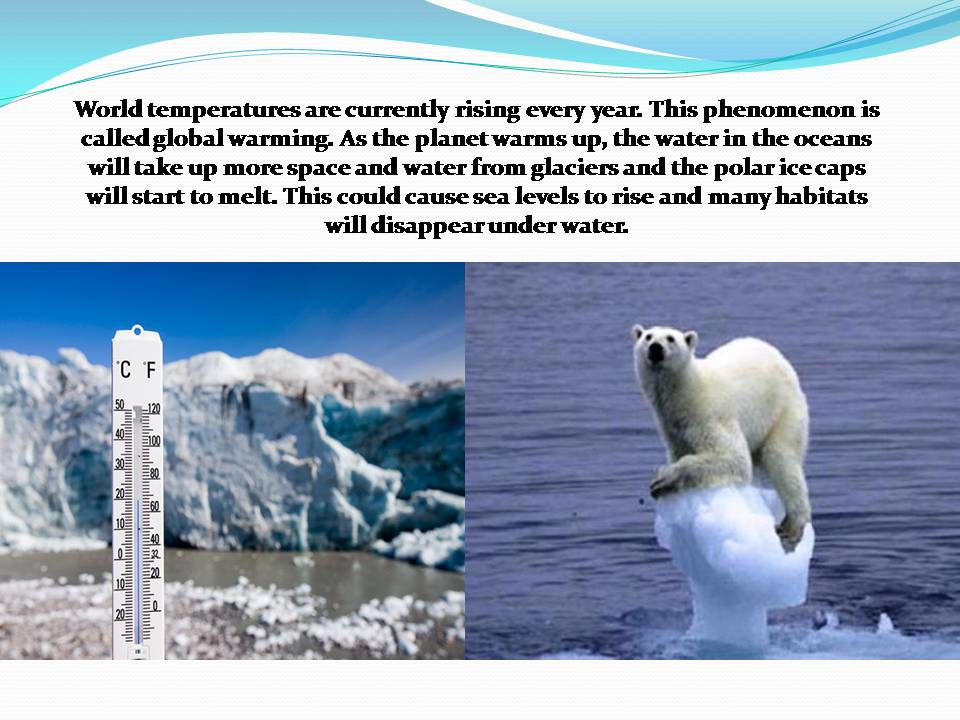
World temperatures are currently rising every year. This phenomenon is called global warming. As the planet warms up, the water in the oceans will take up more space and water from glaciers and the polar ice caps will start to melt. This could cause sea levels to rise and many habitats will disappear under water.
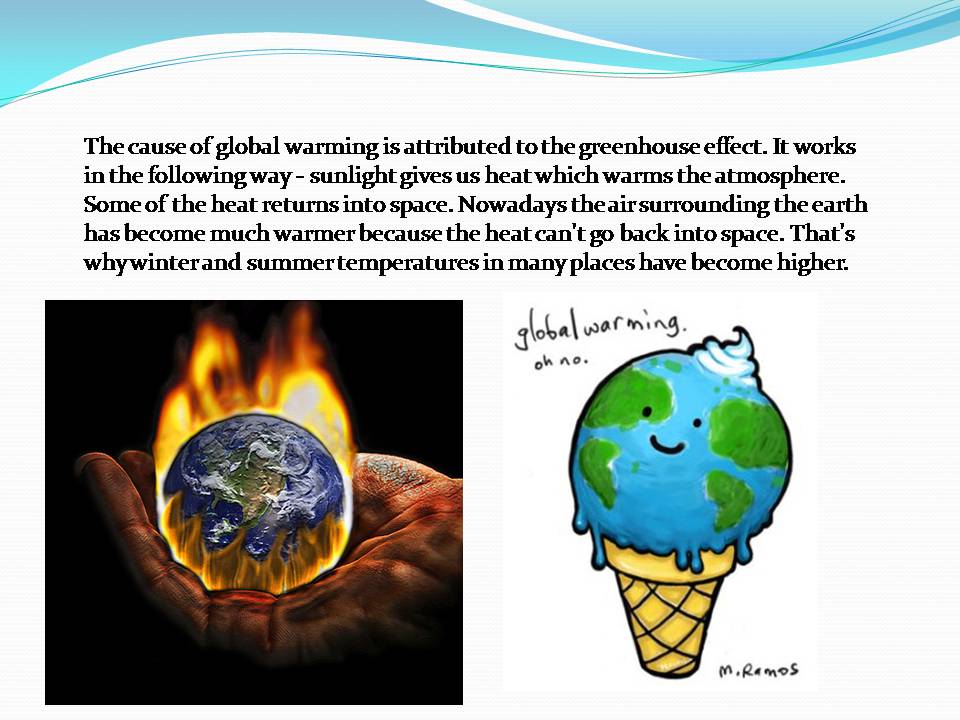
The cause of global warming is attributed to the greenhouse effect. It works in the following way - sunlight gives us heat which warms the atmosphere. Some of the heat returns into space. Nowadays the air surrounding the earth has become much warmer because the heat can't go back into space. That's why winter and summer temperatures in many places have become higher.
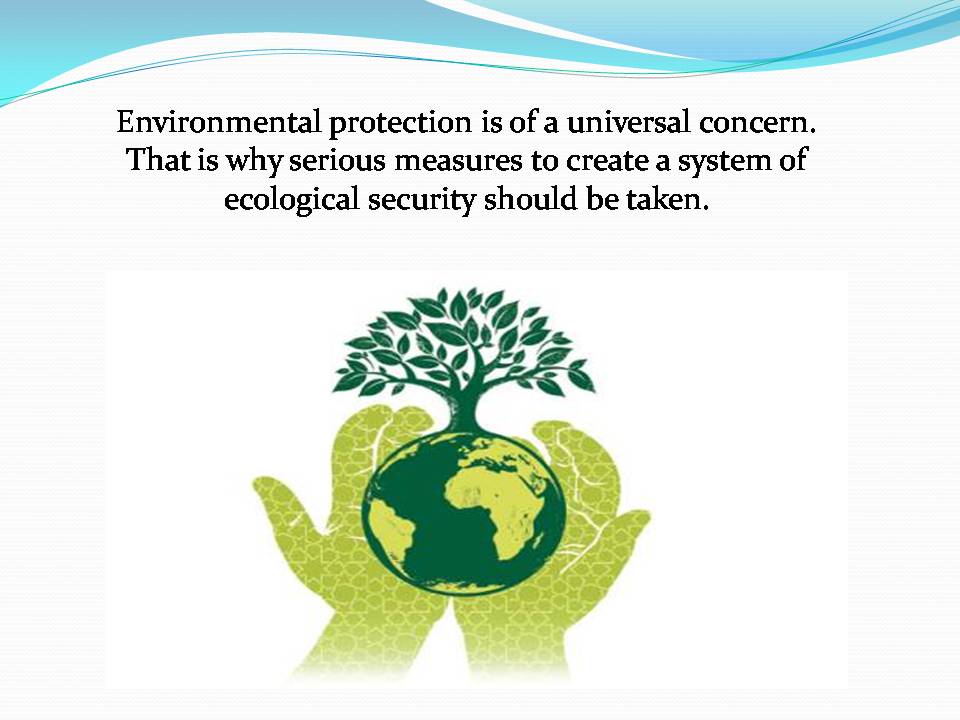
Environmental protection is of a universal concern. That is why serious measures to create a system of ecological security should be taken.
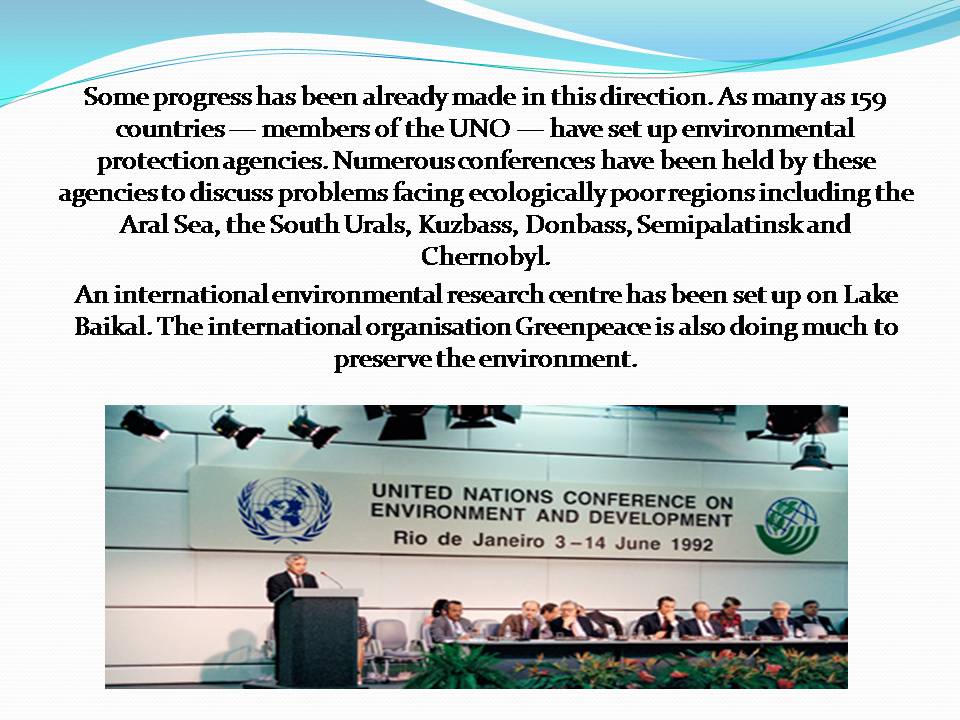
Some progress has been already made in this direction. As many as 159 countries — members of the UNO — have set up environmental protection agencies. Numerous conferences have been held by these agencies to discuss problems facing ecologically poor regions including the Aral Sea, the South Urals, Kuzbass, Donbass, Semipalatinsk and Chernobyl.
An international environmental research centre has been set up on Lake Baikal. The international organisation Greenpeace is also doing much to preserve the environment.
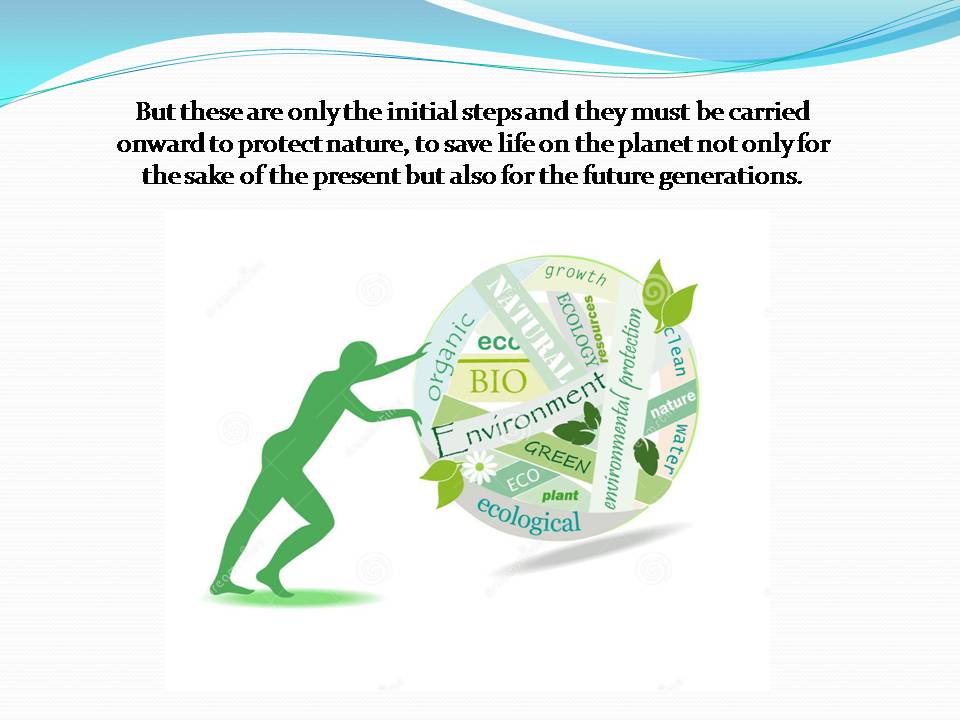
But these are only the initial steps and they must be carried onward to protect nature, to save life on the planet not only for the sake of the present but also for the future generations.

Let's be become environmentally-educated!